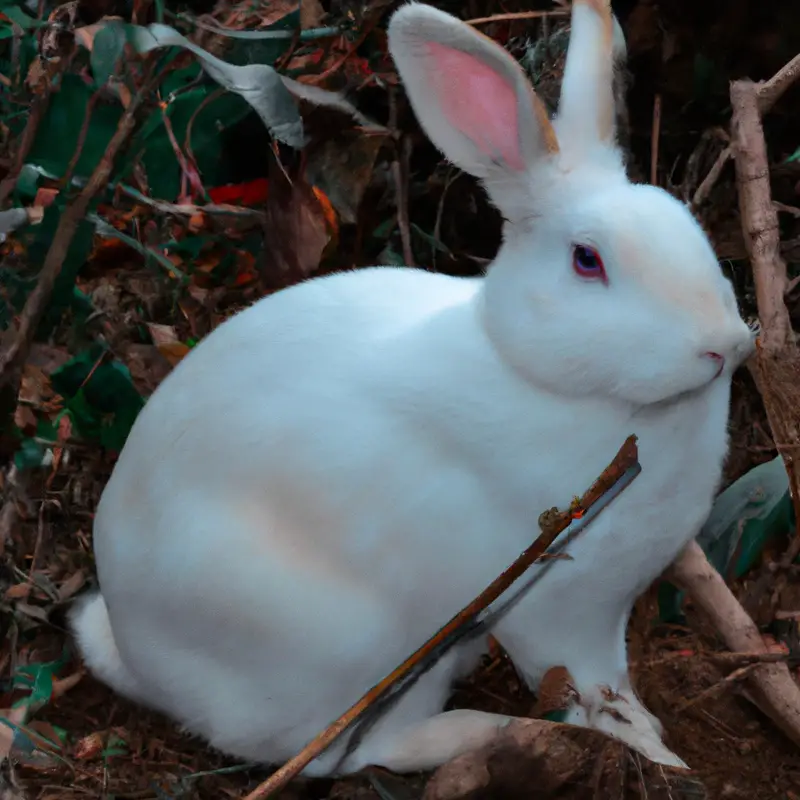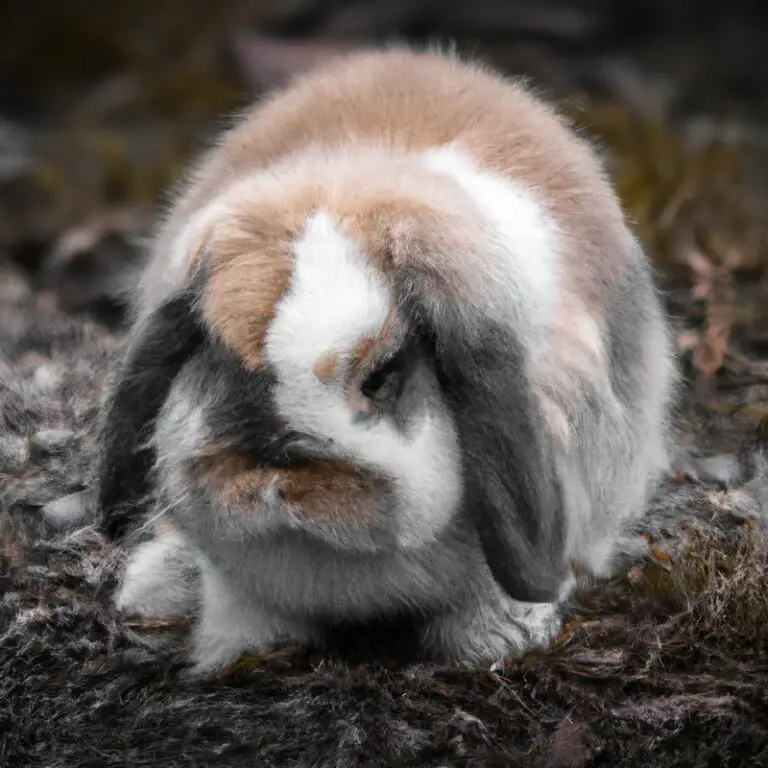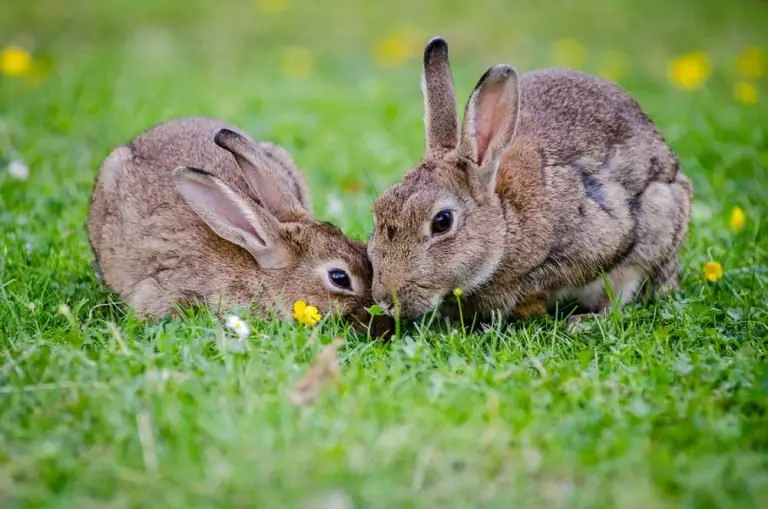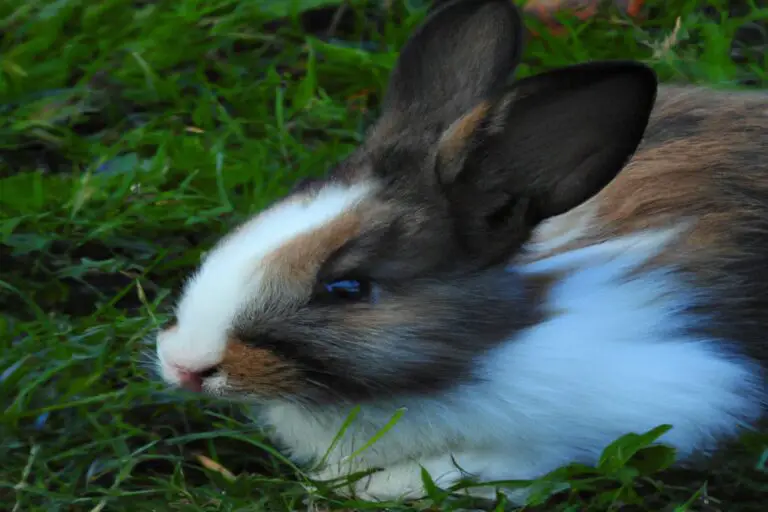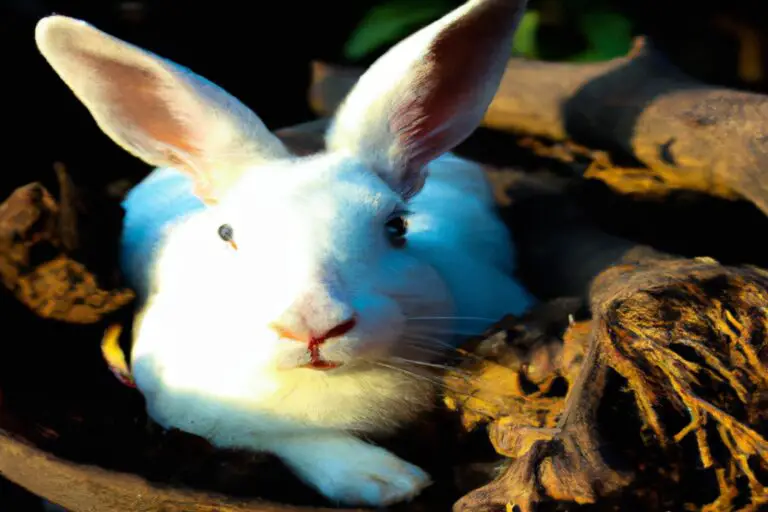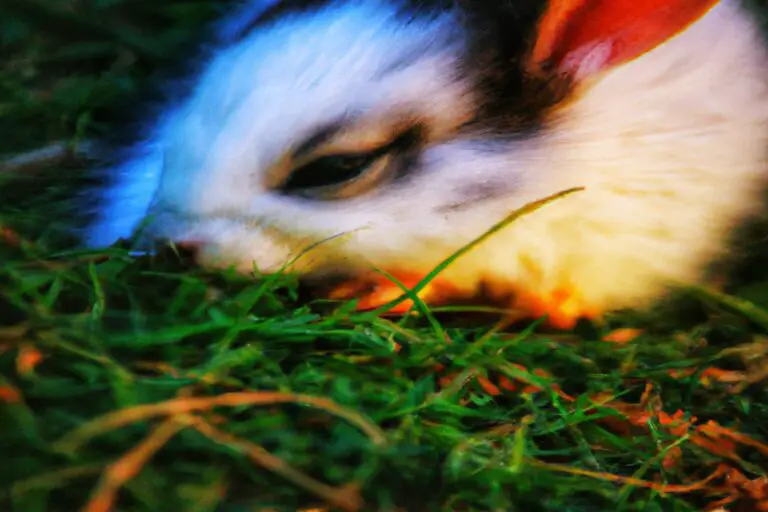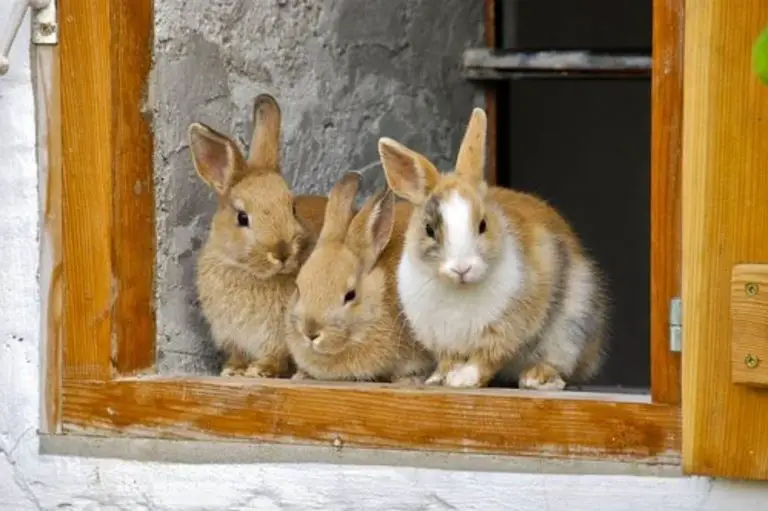How Much Are Lionhead Rabbits? Find Out Here!
Key Takeaways:
- The price of lionhead rabbits can vary depending on factors such as breed quality and location.
- On average, lionhead rabbits can cost anywhere from $40 to $100.
- It is important to consider additional expenses such as cages, food, and veterinary care when budgeting for a lionhead rabbit.
- Lionhead rabbits can also be adopted from shelters or rescue organizations at a lower cost.
Hey there, ever wondered about the cost of owning a lionhead rabbit? These adorable fluffy creatures have been gaining popularity as pets, but how much do they actually cost?
In this article, we’ll dive into the world of lionhead rabbits, exploring their characteristics, history, and origin.
We’ll also discuss the factors that determine their price range and where you can find them for sale. Plus, we’ll uncover the hidden costs of owning a lionhead rabbit.
So, if you’re considering adding one of these charming bunnies to your family, keep reading to find out everything you need to know.
| Breed | Price Range |
| Lionhead | $20 – $100 |
Understanding Lionhead Rabbits
Lionhead rabbits are a unique and popular breed known for their distinctive mane of hair around their head. Understanding their characteristics, history, and origin can help you care for them better.
What are Lionhead Rabbits?
Lionhead rabbits are a small breed of domestic rabbit known for their distinctive appearance. They have a distinctive “mane” of longer fur around their heads, resembling that of a lion.
These rabbits are popular as pets due to their cute and fluffy appearance.
They have a compact and rounded body, and their fur can come in a variety of colors and patterns. Lionhead rabbits are known to be friendly, social, and curious creatures, making them great companions for both children and adults.
They require proper care, including a balanced diet, regular exercise, and safe housing.
Characteristics of Lionhead Rabbits
Lionhead rabbits are known for their distinctive appearance, with a mane of fur around their head resembling that of a lion. These rabbits have a compact and small size, making them perfect for indoor living.
They come in various colors and patterns, including tortoiseshell, opal, and sable.
Lionhead rabbits have a friendly and outgoing personality, making them great companions for both adults and children. They are also known to be intelligent and can be easily trained to learn tricks or use a litter box.
Additionally, they require regular grooming to maintain the health and appearance of their luxurious mane.
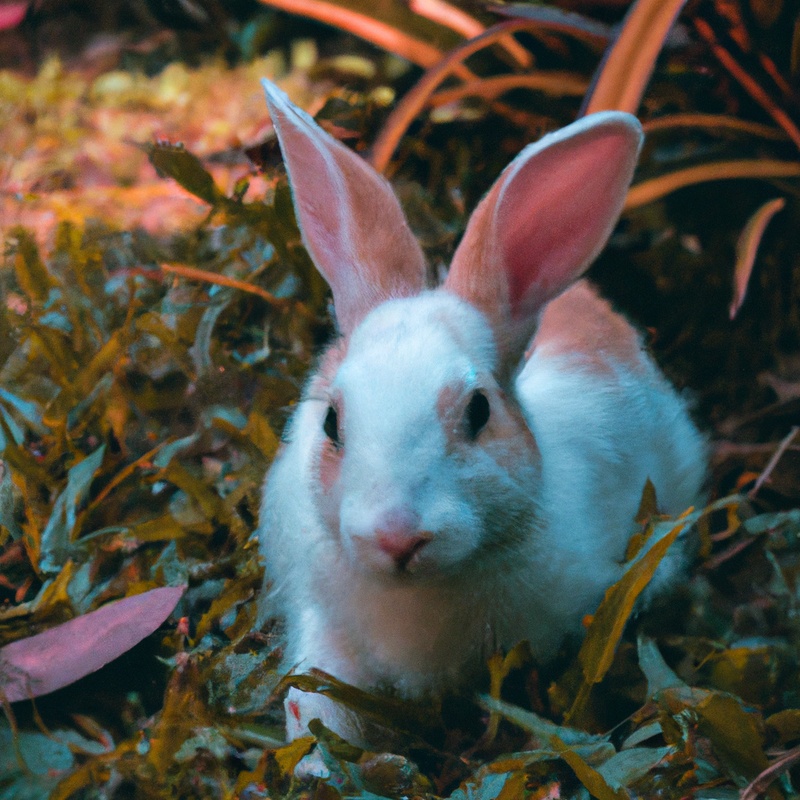
History and Origin of Lionhead Rabbits
The Lionhead rabbit is a relatively new breed that originated in Belgium in the 1990s. It was created by crossing a Swiss Fox with a Belgian Dwarf, which resulted in a unique rabbit with a wool mane around its head.
Lionhead rabbits were initially bred for their distinctive appearance, but they have gained popularity as pets due to their friendly and affectionate nature.
Today, they are recognized by various rabbit breeding associations and are cherished by rabbit enthusiasts worldwide.
The Cost of Lionhead Rabbits
Lionhead rabbits can vary in cost depending on factors such as age, color, and breeder.
Factors Affecting the Price of Lionhead Rabbits
When determining the price of a Lionhead rabbit, several factors come into play.
The main factors affecting the price include the rabbit’s characteristics, such as its breed purity, coloration, and gender.
Additionally, age and lineage can also impact the price.
Other factors may include the rabbit’s health, temperament, and show potential.
Supply and demand within the market also play a role in determining the price.
It’s essential to consider these factors when purchasing a Lionhead rabbit to ensure you are getting the best value for your money.
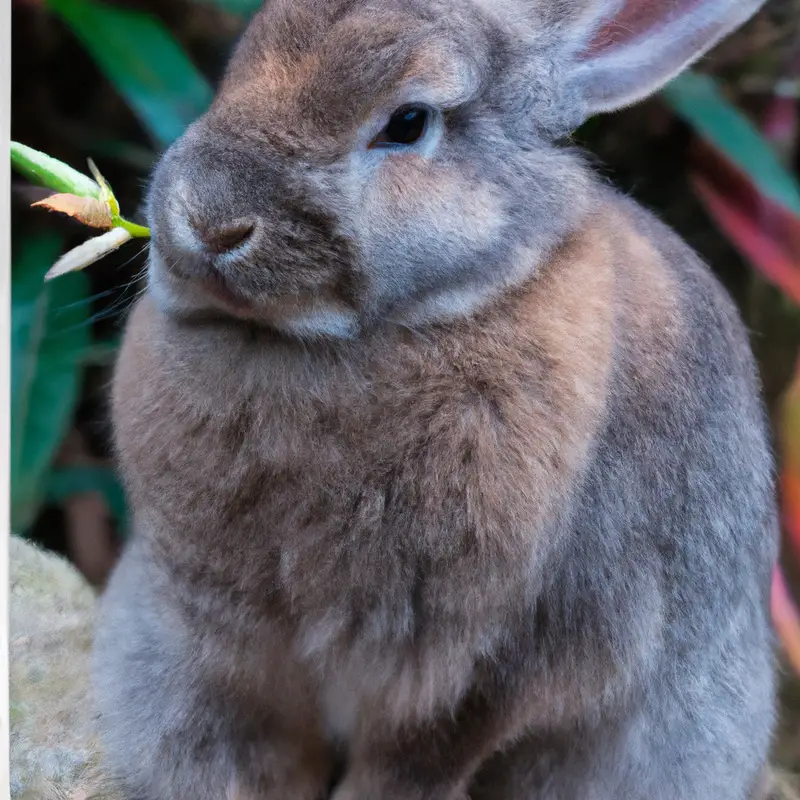
Average Price Range for Lionhead Rabbits
Lionhead rabbits can range in price from $20 to $100, depending on a few factors. The age and quality of the rabbit, as well as the breeder’s reputation and location, can influence the price.
Additionally, if the rabbit has specific coat colors or markings, the price may be higher.
It’s always best to research and compare prices from different breeders to ensure you’re getting a fair deal.
Where to Find Lionhead Rabbits for Sale
You can find Lionhead rabbits for sale at various places. One option is to check online websites such as rabbit breeders’ directories or classified ads.
Additionally, you may find Lionhead rabbits for sale at local rabbit shows or through rabbit rescue organizations.
It’s important to research and choose a reputable seller to ensure the health and well-being of the rabbit. Don’t forget to consider the cost, transportation, and any necessary supplies when buying a Lionhead rabbit.
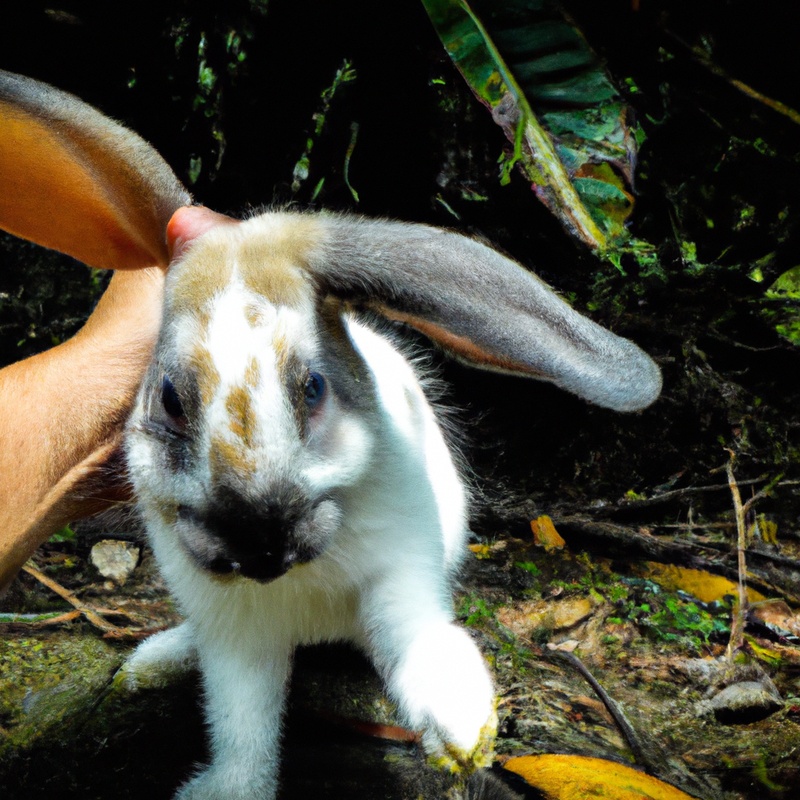
Hidden Costs of Owning a Lionhead Rabbit
Owning a Lionhead rabbit can bring joy and companionship, but it’s important to be aware of the hidden costs that come with it. Here are a few things to keep in mind:
- Veterinary expenses: Regular check-ups and vaccinations are essential to keep your Lionhead rabbit healthy. These costs can add up over time.
- Specialized diet: Lionhead rabbits have specific dietary needs, including fresh hay, vegetables, and high-quality pellets. Investing in the right food can impact your budget.
- Housing and supplies: A comfortable and safe living space is crucial. Consider expenses for a suitable cage, bedding, toys, and other essentials.
- Grooming: Lionhead rabbits have long fur that requires regular brushing to prevent matting and skin issues. Be prepared for grooming tools and potential visits to a professional groomer.
- Unexpected costs: Just like any pet, unexpected veterinary emergencies can arise, leading to additional expenses.
Remember, being prepared for these hidden costs will ensure that you can provide the best care for your Lionhead rabbit without any financial surprises.
Caring for Lionhead Rabbits
Taking care of Lionhead Rabbits involves providing proper housing, nutrition, grooming, exercise, and enrichment.
Housing and Enclosure for Lionhead Rabbits
I recommend providing a spacious enclosure for your Lionhead rabbit to roam and play. A minimum size of 4 square feet is ideal, but the more space, the better.
Use a sturdy, well-ventilated cage or hutch, with solid flooring to prevent injuries.
Provide hiding spots, such as a cardboard box or tunnel, and plenty of chew toys to keep your rabbit entertained. Keep the enclosure in a quiet, draft-free area and ensure it is secure to prevent escapes.
Regularly clean the enclosure to maintain a healthy environment for your furry friend.
Feeding and Diet Requirements
Feeding and Diet Requirements To keep your lionhead rabbit healthy, provide a balanced diet that consists mainly of hay, fresh vegetables, and a small amount of pellets. Hay should make up the majority of their diet, as it aids in digestion and keeps their teeth healthy.
Offer a variety of leafy greens like romaine lettuce, cilantro, and parsley, but avoid feeding them cabbage or iceberg lettuce.
Pellets should be limited to about 1/8 cup per day to prevent obesity. Make sure to always provide fresh water and monitor their food intake to avoid overfeeding.
Grooming Needs of Lionhead Rabbits
Grooming needs for Lionhead rabbits are quite important. Regular brushing helps prevent matting and keeps their fur clean.
It’s good to have a soft bristle brush and a comb handy.
Pay special attention to their mane, as it tends to mat easily. Trimming their nails every 4-6 weeks is recommended.
Lionshead rabbits do not require frequent bathing as it can dry their skin, but do check their butt area regularly for cleanliness.
Keep an eye on their teeth as they can overgrow and cause health problems.
Exercise and Enrichment for Lionhead Rabbits
Exercise and enrichment are essential for the well-being of Lionhead rabbits. Providing them with opportunities to explore and play helps keep them physically and mentally stimulated.
Some ways to achieve this are by offering them a spacious and secure enclosure, providing toys for them to chew on and interact with, and allowing supervised time outside of the cage to hop and run around.
Additionally, providing them with tunnels, platforms, and hiding spots can also help keep them entertained and engaged. Remember, a happy and active Lionhead rabbit is a healthy one!
Health and Veterinary Care for Lionhead Rabbits
When it comes to the health and veterinary care for Lionhead rabbits, there are a few key aspects to consider.
Common Health Issues of Lionhead Rabbits
Lionhead rabbits, like any other pets, may experience certain health issues.
Here are some common health concerns for these adorable creatures:
- Dental Problems: Due to their compact jaws and short snouts, lionhead rabbits are prone to dental issues. They may suffer from overgrown teeth, which can lead to pain, difficulty eating, and other complications.
- Digestive Issues: Rabbits have sensitive digestive systems, and lionheads are no exception. GI stasis, a condition where the digestive system slows or stops functioning, is a common problem. It’s important to provide a balanced diet with plenty of fresh hay and vegetables to prevent such issues.
- Fur and Skin Problems: Lionhead rabbits have long, dense fur, which requires regular grooming. Without proper care, their fur can become matted, leading to skin problems and even infections. Regular brushing and checking for signs of skin irritation are crucial.
- Eye Infections: Lionhead rabbits are prone to eye infections such as conjunctivitis. Keep an eye out for any discharge, redness, or swelling in their eyes and seek veterinary care if necessary.
- Ear Infections: Due to their adorable lop ears, lionheads are more prone to ear infections. It’s important to check their ears regularly for any signs of redness, discharge, or foul odor and seek prompt veterinary treatment if needed.
Remember to provide proper care, a balanced diet, regular grooming, and plenty of love and attention to keep your lionhead rabbit healthy and happy.
Regular check-ups with a knowledgeable exotic animal veterinarian can also help detect and prevent potential health issues.
Regular Health Check-ups and Vaccinations
Regular health check-ups and vaccinations are essential for maintaining the well-being of your lionhead rabbit. These check-ups allow veterinarians to diligently monitor their overall health, detect any potential issues early on, and provide necessary preventive care.
Vaccinations, on the other hand, protect your rabbit from harmful diseases.
By scheduling regular check-ups and ensuring your rabbit is up to date on vaccinations, you can give them the best chance of a long and healthy life. Don’t forget to consult with a veterinarian for specific recommendations and guidelines.
Finding a Reputable Rabbit Veterinarian
When looking for a reputable rabbit veterinarian, start by asking fellow rabbit owners for recommendations.
It’s important to find a vet who has experience with rabbits and is knowledgeable about their specific needs.
Research the veterinarian’s credentials and check if they are a member of a professional association.
In addition, schedule a visit to the veterinarian’s clinic to ensure it is clean, well-equipped, and has a friendly staff.
Trust your instincts and choose a veterinarian who makes you and your rabbit feel comfortable.
Frequently Asked Questions about Lionhead Rabbits
What is the lifespan of a Lionhead Rabbit?
The lifespan of a Lionhead Rabbit typically ranges from 7 to 10 years.
However, with proper care, some Lionhead Rabbits have been known to live even longer.
Regular veterinary check-ups, a balanced diet, exercise, and a clean living environment are key to ensuring a long and healthy life for your furry friend.
Are Lionhead Rabbits suitable as pets for children?
Lionhead rabbits can make great pets for children.
Their small size and gentle nature make them easy to handle and care for.
They have a friendly and playful personality, which kids often find enjoyable.
However, as with any pet, adult supervision is necessary to ensure the well-being of both the child and the rabbit.
It’s important to teach your child how to properly handle and interact with the rabbit to prevent any accidental harm.
With the right guidance, Lionhead rabbits can be fantastic companions for children.
Can Lionhead Rabbits be trained?
Absolutely! Lionhead rabbits can definitely be trained. Just like any other pet, they can learn and respond to training techniques with consistent and patient effort.
Whether you want to teach them to come when called, use a litter box, or do tricks, it’s all possible with positive reinforcement and rewards.
Start with basic commands and gradually progress to more complex tasks. Remember to always be gentle, provide them with treats, and make training sessions fun and engaging for both of you.
Happy training!
Are Lionhead Rabbits social animals?
Yes, Lionhead rabbits are social animals.
They enjoy the company of their human owners and can bond well with other rabbits if introduced properly.
It’s important to provide them with opportunities for social interaction, such as supervised playtime and companionship.
They thrive in a social environment where they can groom each other and engage in playful activities.
It’s always best to consult with a veterinarian or a rabbit behavior expert for guidance on ensuring the social well-being of your Lionhead rabbit.
Are Lionhead Rabbits low-maintenance pets?
Lionhead rabbits can be considered low-maintenance pets.
They have a calm temperament and are generally healthy animals.
They require a balanced diet, consisting of hay, fresh vegetables, and a small amount of pellets.
Providing a clean living environment, regular grooming, and access to exercise will help keep them happy and healthy.
They do not require daily walks like dogs and are fairly independent.
However, it’s important to note that all pets require care and attention, so regular check-ups with a veterinarian and bonding time with your rabbit are essential for their well-being.
Do Lionhead Rabbits require any special care during winter?
Lionhead rabbits do require special care during winter.
Here are a few tips to keep them safe and comfortable:
- Provide adequate bedding and insulation in their hutch to keep them warm.
- Make sure their water doesn’t freeze by using a heated water bottle or checking it regularly.
- Limit their exposure to extreme cold temperatures by bringing them indoors or providing a sheltered area.
- Increase their food intake to help them generate more body heat.
- Monitor their health closely for any signs of frostbite or hypothermia.
Taking these precautions will help ensure your Lionhead rabbit stays happy and healthy during the colder months.
Final Verdict
Understanding the cost of owning a lionhead rabbit is essential for anyone considering this adorable breed as a pet. Factors that affect their price range include pedigree, color, and age.
While the average price for a lionhead rabbit can range from $30 to $100, it’s important to consider the hidden costs such as food, housing, and veterinary care.
Properly caring for lionhead rabbits involves providing a suitable enclosure, balanced diet, regular grooming, and plenty of exercise and enrichment. Additionally, regular health check-ups and vaccinations are crucial to maintaining their well-being.
Overall, lionhead rabbits can make wonderful pets, but they require commitment and responsible ownership.

